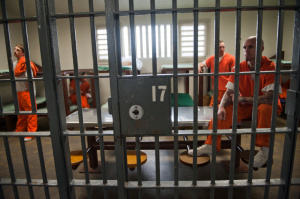
By: Veronica Henderson, Attorney at Law
On November 8th, California voters were presented with several propositions relating to criminal justice reform. Proposition 57, largely the brainchild of Governor Jerry Brown, is an effort to recalibrate California’s criminal justice system by returning certain powers from prosecutors to judges, parole boards, and prison officials. Although strongly opposed by certain District Attorney’s offices due to concerns over the release of prisoners who have been convicted of felony offenses, the voters said yes to Proposition 57, by almost by a two-thirds majority. What does this mean to the people of our area?
Proposition 57 requires that judges, rather than prosecutors, make the determination as to whether a person under the age of 18 can be tried as an adult. Any prosecutor who wants a case transferred to adult court would have to successfully argue the matter to a judge, who would have the final say on where the accused would be tried. This undoes Proposition 21, passed in 2000, which allowed prosecutors to choose between juvenile and adult court. Many district attorneys now acknowledge that the 2000 juvenile justice measure was overkill and needed to be rolled back.
A second major area of change addressed by Proposition 57 relates to the release of certain adult prisoners who have been convicted of nonviolent crimes. Under this new legislation, some inmates can apply for parole hearings and get parole after they have completed their base prison terms and have begun serving the enhancement portion of their sentences. This legislation carves out new opportunities for prisoners to earn additional credits, such as through participating in rehabilitation programs, educational endeavors, and good behavior. Many of these programs have not been offered before.

Although this is a form of “early release,” parole is not a new concept in California, and California is mandated through a federal court order to reduce its prison population. Of course, parole is not automatic, nor will it be under the terms of Proposition 57. Prisoners applying for early release must still pass screening for public security to become eligible for parole. It is anticipated that about 7,000 inmates will become immediately eligible for parole consideration. The department that manages prisons in California is formally named “California Department of Corrections and Rehabilitation.” Rehabilitation programs in prisons will be implemented under this legislation, and inmates will no longer simply be warehoused.





